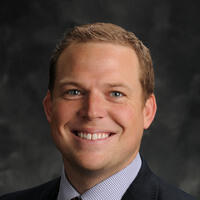STONEVILLE, Miss. -- Mississippi State University’s National Center for Alluvial Aquifer Research in Leland will demonstrate an easier method for deploying polypipe at a field day showcasing irrigation water management strategies on June 12.
Irrigation experts are testing a new automatic system that punches holes in polypipe, which is used for furrow irrigation in row crops. In the Mississippi Delta, about 70% of farmland is irrigated, and furrow irrigation is the most common method, used on about 83% of those acres.
“For many growers using polypipe, hole sizes are determined by ‘prescriptions’ from software that considers factors like row spacing, field size and slope, and well flow rate,” said Drew Gholson, MSU Extension irrigation specialist and assistant professor in the Department of Plant and Soil Sciences. “When complete, the new technology, developed by scientists in the Mississippi Agricultural and Forestry Experiment Station, could replace the labor-intensive job of manually puncturing the polypipe, which often causes frayed and irregular-shaped holes.”
An automated hole puncher placing the correct hole size on the correct furrow can result in 25-50% savings on water costs, he added.
Collaboration has been key to the development of the automated system, Gholson said, noting that the work of Wes Lowe, an assistant professor in Mississippi State’s Agricultural and Biological Engineering Department and MAFES scientist, was integral to the project.
“Wes and I met and tested some ideas, and his team has been working on the design and building of the hole puncher,” Gholson said. “We are now moving from concept to field testing and adjustments. We are still in the development and evaluation stage, but this is an exciting development that could change in-furrow irrigation while providing cost savings to our growers.”
The development of the automated system is one of several research projects scientists have undertaken at NCAAR in support of Mississippi Delta growers. Gholson said research trials, wide-row irrigation, irrigation scheduling, water quality, general soil health and cover crops will be discussed, and irrigation technology vendors will be on site as well.
Gholson said he is hopeful that agricultural growers, stakeholders and MSU’s federal and state ag partners will attend the field day to learn more about the ongoing research work at NCAAR.
“Our mission in everything we do is to try to combine water savings with on-farm profitability,” Gholson said.
Lunch is provided, but a reservation is requested. For more information, contact Gholson at drew.gholson@msstate.edu.
NCAAR is a joint effort between Mississippi State and USDA-Agricultural Research Service where scientists conduct research and provide information for issues surrounding water use for agriculture and natural resources in the Lower Mississippi Basin. It is part of the university’s Delta Research and Extension Center in Stoneville.
Contacts
-
 Associate Professor
Associate Professor- Plant and Soil Sciences